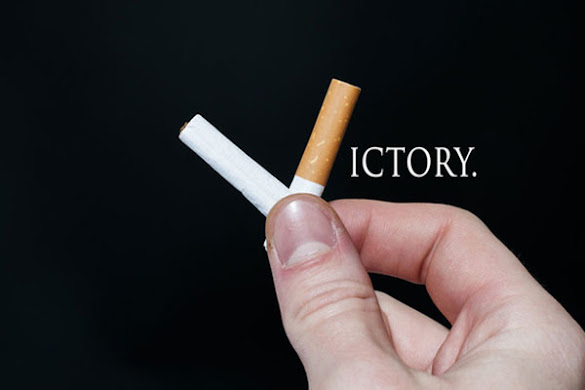What Happens after 30 Days of Quitting Smoking?
If you're a smoker, the prospect of quitting might be overwhelming. Some people continue to smoke even though they believe their bodies have already been harmed. Simply said, this isn't the case. One hour after you've put out your last cigarette, your body will reap the advantages. The sooner you stop smoking, the better off you'll be in the long run.
What happens when you stop smoking?
When you stop smoking, your body soon undergoes a series of positive changes. Your blood pressure and heart rate decrease within 20 minutes. Carbon monoxide levels return to normal in your body after 12 hours. Your circulation improves within a few weeks, and you stop coughing and wheezing as frequently.
However, when you are quitting smoking, you might find yourself feeling a little agitated about it. These are often intense and long-term. Nicotine withdrawal symptoms normally peak within the first three days after stopping smoking and persist for around two weeks. These include:
Anxiety
Migraines
Difficulty in sleeping
Lethargy
Fatigue
Hunger
Irritability
According to studies, the average smoker has withdrawal symptoms within one hour of quitting smoking. However, within the first three hours, you may experience worry, depression, and difficulty concentrating.
How does your Body Change within One Month of Smoking?
Smoking can cause long-term health adversities. From respiratory problems to cardiac diseases, smoking can put your overall health in danger. Apart from this, nicotine can also decrease the good cholesterol in your body, which increases the risk of coronary artery disease.
Thus, when you go 30 days without smoking, your lung function starts improving. Former smokers may have less coughing and breathlessness as their lungs recover and their lung capacity improves. In addition, they can experience a revitalized aptitude for cardiovascular exercises such as jogging and leaping as their athletic endurance improves.
What Happens After 30 Days of Quitting Smoking?
Cigarette smoke contains nicotine, which can raise blood pressure and increase the risk of a heart attack or stroke. However, your blood pressure begins to normalize after you quit.
The amount of oxygen in your body increases when you stop smoking. As a result, your lung function will start to improve. You cough less and breathe more freely.
Smoking dulls your perception of taste and smell by deafening nerve endings in your mouth and nose. These nerve endings begin to repair after you stop smoking. Your sense of smell and taste will also be reactivated.
Benefits of Quitting Smoking
Improved Cardiac Health
Tobacco includes nicotine and generates compounds such as carbon monoxide, which increases heart rate and blood pressure. The same effect is achieved by vaping with tobacco-induced e-cigarette fluids. When you inhale, the impact is instantaneous.
Better Lung Functions
By the end of the first day without cigarettes, the carbon monoxide levels in your lungs will have returned to a more normal level. As a result, your lung function might have improved by as much as 30% in just one to three months of quitting smoking.
Increased Blood Circulation
The blood circulation will significantly improve after 30 days of quitting smoking. Nicotine has a strong vasoconstriction impact, which causes blood vessels to tighten. Almost every organ is affected by this.
Decreased Withdrawal Symptoms
When it comes to quitting smoking, smokers frequently dread nicotine withdrawal and cravings. Nicotine in the body will be totally depleted three days after quitting smoking.
Conclusion
There are several benefits of quitting smoking. However, it will seem difficult initially, but once you decide to never light up a cigarette again, you will start noticing how your health has gotten better.


Comments
Post a Comment